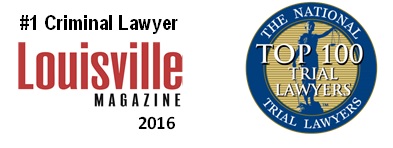PROSECUTIONAL MISCONDUCT
U.S. v. Emueybunan, 208 F.3d. 377 (2001). Statements by a prosecutor in a closing argument are not proper if they bring to the attention of the jury facts not in evidence. When reviewing claims of prosecutional misconduct:
- Determine whether statements were improper.
- If improper, were the statements flagrant:
- Did the statement mislead the jury or prejudice the defendant?
- Was the statement isolated?
- Was the statement deliberate or accidental?
- Total strength of evidence against the accused.
If the statement is non-flagrant the defendant must prove:
- Evidence of guilt is not overwhelming.
- Defendant objected.
- Trial Court failed to cure the impropriety with an admonition.
Did the prosecutor misstate evidence? Did the prosecutor argue evidence he knew to be false?
U.S. v. Carroll, (1993). Claims that the prosecutor made improper comments is reviewed for plain error when comments were made without objection.
If remarks were improper and non-flagrant, the defendant is entitled a new trial only if:
- Guilt was not overwhelming.
- Defendant objected to remarks.
- Trial Court failed to cure error with admonishment.
FLAGRANT
- When remarks were said to mislead the jury.
- Were the remarks isolated or extensive?
- Were the remarks deliberate or accidental?
The U.S. Attorney is not the representative of an ordinary party. The AUSA has a twofold aim which is, guilt should not escape nor should innocence suffer. He must refrain from improper methods calculated to produce a wrongful conviction.
- Were the prosecutor’s remarks improper?
- Was the error harmless?
- Degree to which the remark misleads.
- Remarks were isolated or extensive.
- Remarks were deliberate or accidental.
- Strength of government competent proof.
Another factor is, did the trial court give a cautionary instruction designed to overcome prejudice?
- USA deliberately injected inadmissible prejudiced lie.
- The remarks may have affected the jury.
- Trial Court failed to give a cautionary instruction.
- Evidence against the defendant was not overwhelming.
U.S. v. Owens, (2005). The Court of Appeals reviews allegations of prosecutional misconduct to which trial counsel objected de novo.
Darden v. Wainwright, U.S. Supreme Court (1986) habeas corpus, murder/death penalty case. The prosecutor blamed the Department of Corrections for furlowing Darden implying the death penalty will eliminate parole mistake. Prosecutor referred to Darden as an animal.
Supreme Court held:
Prosecutor’s improper comments during closing arguments reflecting an emotional reaction does not render trial fundamentally unfair. So as to deny defendant’s due process where:
- The argument does not mistake the evidence.
- The argument does not implicate other specific rights of the accused such as the right to counsel.
- The argument was “invited” by the defendant’s closing.
- The existence of overwhelming evidence reduces the likelihood of jury influence.
U.S. v. Reyes, 577 F.3d. 1089, (2009). The 9th Circuit found that the government asserted material facts to the jury that it knew were false or had strong reason to doubt. The 9th Circuit warned, “We do not lightly tolerate such conduct and there was no reason to tolerate misconduct here.” During closing arguments the prosecution falsely and knowingly claimed certain witnesses were unaware of stock option backdating when an FBI statement showed otherwise.
Frazier v. Cupy, 89 S.Ct. 1420. In an opening statement, prosecution included summary of an accomplice who later took the Fifth and did not testify. The U.S. Supreme Court said instructions cured the problem. The statement was not an important part of the government’s case. Every variance between the prosecutors opening statement and the actual proof at trial does not constitute reversible error, when a proper limiting instruction is given. The unproduced evidence was not shown to the jury as a crucial part of the prosecutor’s case.
Slagle v. Bagley, test to determine if prosecutor’s 15 improper comments amount to prosecutor misconduct.
- Was the case strong?
- The improper statements were minimally prejudiced.
- Improper statements were relatively isolated.
- Improper statements were not intentional.
Statements made just to ??? the defense is improper.
DUE PROCESS – GOVERNMENT CLOSING
In determining whether certain offensive comments made in the prosecutor’s closing argument rendered the trial fundamentally unfair, the relevant question is “Whether the comments so infected the trial with unfairness as to make the conviction a denial of due process.” In this case, the defendant had a rebuttal closing to address the prosecutor’s improper statement.
Parden v. Wainwright, 477 U.S. 168 (1980), the prosecutor should refrain from arguments which would divert the jury from its duty to decide the case based on the evidence, by injecting issues broader than guilt or innocence or making predictions about consequences of a jury verdict (not guilty).
VOUCHING
Slagle v. Bagley, 457 F.3d. 593 (2008), improper statements by prosecution may include:
- I put my money on the detective, I stand behind your police work.
- I put my trust in officer Dukes.
- Howard Jones is not going to come in here and tell you something that is not true.
The prosecutor must refrain from injecting personal beliefs into the presentation of his case.







